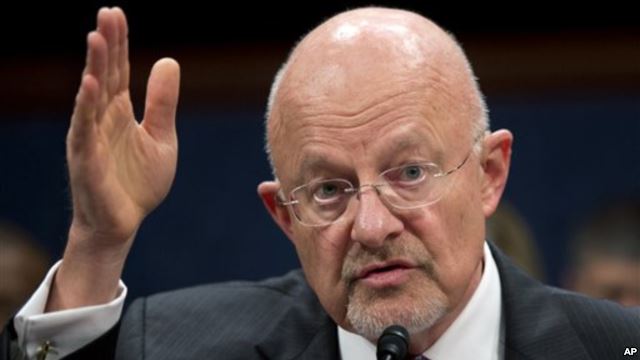US Director of National Intelligence James Clapper criticized Saturday media reports about the large-scale government collection of private internet data, dpa reported.
"Over the last week we have seen reckless disclosures of intelligence community measures used to keep Americans safe," he said in a statement.
"In a rush to publish, media outlets have not given the full context-including the extent to which these programs are overseen by all three branches of government-to these effective tools."
A secret programme called PRISM is the leading source of raw material for the National Security Agency, the secretive US intelligence operation that monitors electronic communications, the Washington Post reported Thursday, citing an internal presentation to senior NSA analysts.
US intelligence services tapped directly into the servers of at least nine leading internet companies including Google, Facebook, Apple, Yahoo, AOL, Skype, YouTube and Microsoft to extract emails, voice calls, videos, photos and other communications from their customers without the need for a warrant. Google, Yahoo, Facebook and Apple denied any involvement with PRISM.
The PRISM report came a day after British newspaper The Guardian reported on FBI requests for details of all the phone calls that were placed over the network of the leading US telecommunications company Verizon.
Clapper said he could not provide all the details about the programme or correct all misinformation in the article without disclosing classified information, but said he sought to "dispel some of the myths" surrounding the intelligence effort.
He maintained that PRISM had not gathered any data without the knowledge of the companies involved and said the programme was not a secret data collection programme, but an internal government computer system. He did not share information about the collected data, but claimed it had prevented terrorist attacks.






